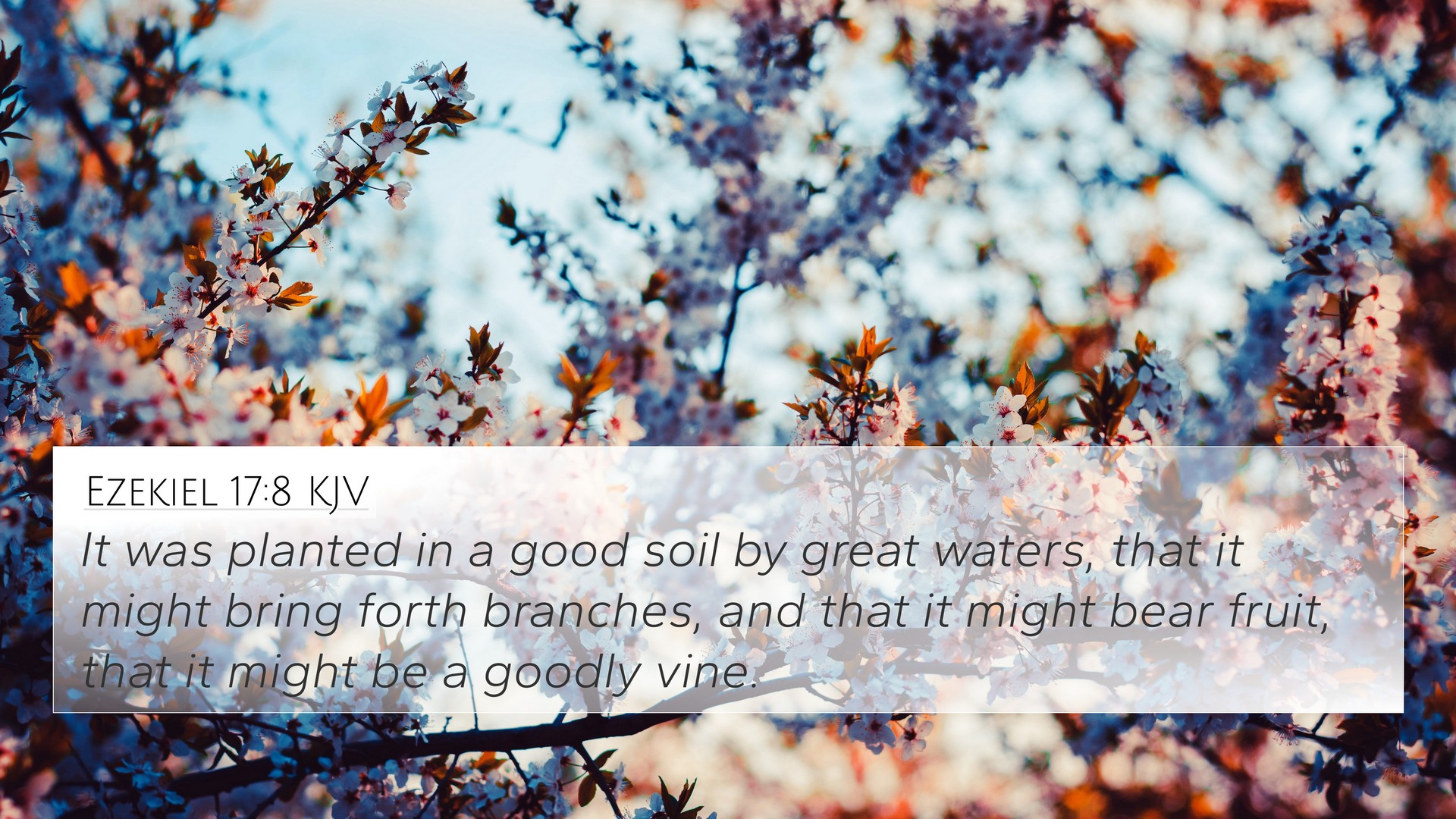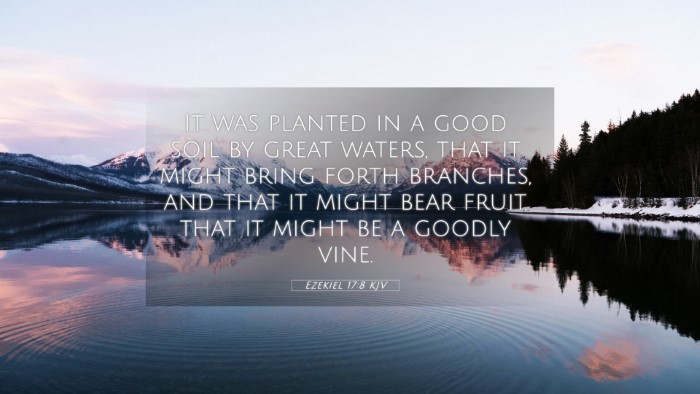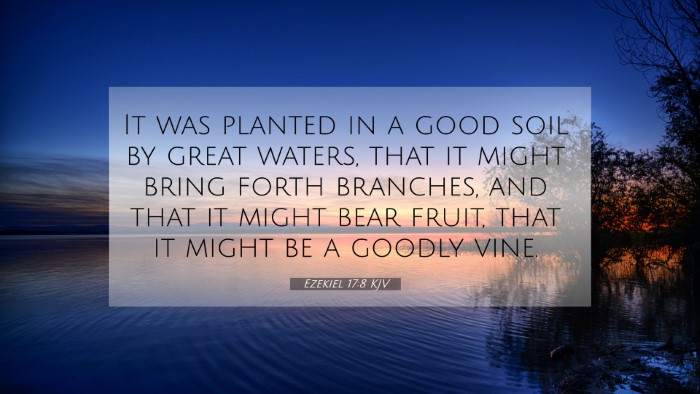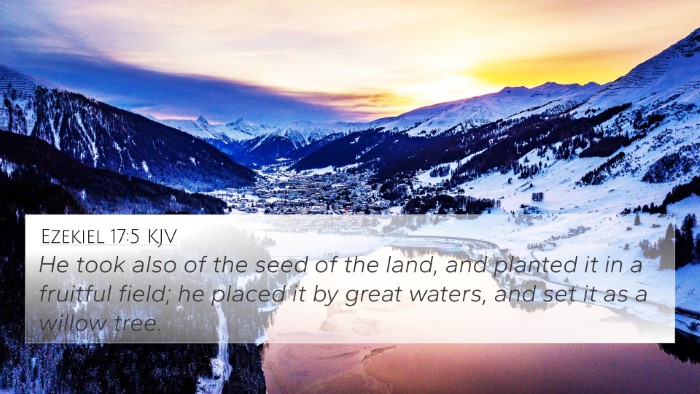Ezekiel 17:8 - Summary and Interpretation
Bible Verse: Ezekiel 17:8 - "It was planted in a good soil by great waters, that it might bring forth branches, and that it might bear fruit, that it might be a goodly vine."
Meaning and Context
The verse from Ezekiel 17:8 is part of a parable depicting the fate of Israel. This imagery of a vine illustrates God's dealings with His chosen people. Matthew Henry notes that the "good soil" signifies the favorable conditions and opportunities that God provided to Israel for growth and prosperity.
Albert Barnes interprets the vine as representing the kingdom of Judah, emphasizing the significance of the "great waters" which symbolize the blessings and sustenance that God offers to His people. This continuous nourishment is essential for spiritual vitality and fruitfulness.
Adam Clarke offers insights into the agricultural metaphor, indicating that a vine is expected to bear fruit if it is well cared for. This serves as a reminder of the high expectations God has for Israel, reflecting the covenant relationship where obedience leads to blessings.
Thematic Bible Verse Connections
Understanding Ezekiel 17:8 can be enriched through thematic connections with other Bible verses. Here are some meaningful cross-references:
- John 15:1-2 - Jesus as the true vine, emphasizing the importance of remaining in Him to bear fruit.
- Psalm 1:3 - Describing a man who is like a tree planted by streams of water, bearing fruit in its season.
- Isaiah 5:1-2 - A song about God’s vineyard that produced wild grapes, which is a dire warning about failing to produce righteous fruit.
- Jeremiah 17:7-8 - Comparing the blessed man with a tree planted by water, showcasing the importance of trust in the Lord.
- Matthew 21:19 - Jesus cursing the barren fig tree, serving as a vivid lesson on the expectations for fruitfulness.
- Romans 11:17-24 - Discussing the metaphor of olive trees in relation to God’s people and the importance of bearing fruit.
- Galatians 5:22-23 - Paul speaks of the fruit of the Spirit that should be evident in the lives of believers.
- Hosea 10:1 - Another reference to Israel as an empty vine, called to return to God and bear good fruit.
- Luke 13:6-9 - The parable of the barren fig tree, underscoring the importance of producing fruit in line with God’s expectation.
- Revelation 22:2 - The Tree of Life bearing twelve kinds of fruit, signifying the ultimate fulfillment of God’s purpose for life and sustenance.
Exploring Cross-Referencing Methods
When engaging in a Bible cross-reference study, there are several tools and methods that can enhance understanding:
- Bible Concordance: Useful for finding specific words or themes across various scripture.
- Bible Reference Resources: Study Bibles often have cross-references in the margins.
- Bible Cross-Reference Guide: Some specialized guides list verses that relate thematically or contextually.
- Online Cross-Reference Tools: Websites and apps can provide digital cross-referencing features for deeper study.
- Comparative Bible Study: Reading passages in different translations can reveal connections not immediately visible in one version.
- Inter-Biblical Dialogue: Examining the New Testament’s use of Old Testament scriptures, like the application of Ezekiel in Jesus’ parables.
- Identifying Connections: How verses reflect God’s covenant with Israel can be explored through the lenses of the Major and Minor Prophets.
Conclusion
Ezekiel 17:8 serves as a powerful reminder of God’s expectations for His people and the covenant relationship characterized by growth and fruitfulness. Understanding this verse in light of its cross-references and biblical themes deepens our grasp of God’s overarching narrative and promises. By applying cross-referencing tools and methods, believers can enhance their studies and foster a richer understanding of scripture.



